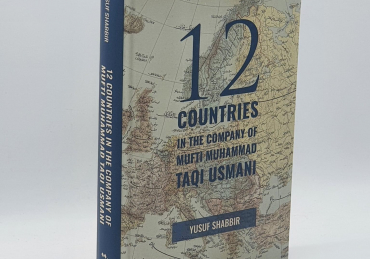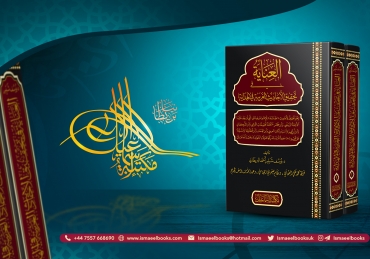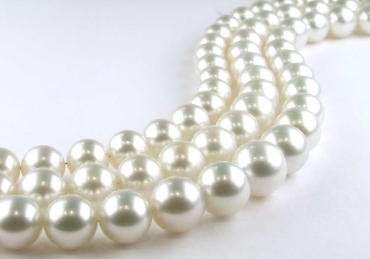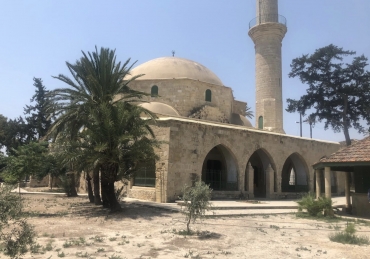Gems of Mufti Muhammad Taqi Usmani (2019)
بسم الله الرحمن الرحیم
Over the past two weeks, we had the unique honour of spending some time in the company of Shaykh al-Islam Mufti Muhammad Taqi Usmani (b. 1362/1943) and benefiting from his ocean of knowledge and wisdom. The following is a brief summary of some of the Q&A with Mufti Ṣāḥib along with a translation of some of the discourses rendered in gatherings and programmes. We are in the process of transcribing some of his Urdu speeches, which will be published in due course.
General advice and discourses
- Mufti Muhammad Taqi Usmani said, “Do not underestimate a good deed, for you do not know how heavy it is in the scale of the hereafter, and secondly, the thought of doing a good deed is from Allah, if valued, the thought will come again, otherwise, it will not come again.”
- Mufti Muhammad Taqi Usmani said, “Never think that I will commit a sin and then repent, because sins lead to sins, and what if you pass away before repenting?”
- Mufti Muhammad Taqi Usmani said, “My respected father Mufti Muḥammad Shafīʿ would say at a time when the speakers were his students or their students, ‘If a speaker is rendering some advice, I will listen to it for a short while, perhaps he renders some advice with such sincerity that it transforms my heart.’”
- Mufti Muhammad Taqi Usmani said, “Tafaqquh fī al-Dīn (understanding of religion) is to recognise what Allah requires and demands from us at each particular moment. This cannot be achieved merely by reading books. It requires the nurturing and company of a teacher.”
- Mufti Muhammad Taqi Usmani said, “Focus on how heavy your deeds are in the scales of the hereafter. Deeds become heavy through sincerity. A person who removed a thorn from the path with sincerity was forgiven.” [Tr. Note: Refer to Ṣaḥīḥ al-Bukhārī, 2472].
- Mufti Muhammad Taqi Usmani said, “It is difficult for a scholar not to like fame and eminence.”
- Mufti Muhammad Taqi Usmani said, “My respected father Mufti Muḥammad Shafīʿ narrated from Ḥājī Imḍadullāh Muhājir Makkī that he said, ‘the most blessed form of income is a gift that is gifted by a Muslim out of affection.’”
- Mufti Muhammad Taqi Usmani said, “A gift should be based on the pleasure of Allah and affection for the recipient. It should not be given for fear of shame, otherwise such a great worship becomes an act of sin.”
- Mufti Muhammad Taqi Usmani said, “Intention can transform soil into gold and gold into soil.”
Contemporary affairs
- Mufti Muhammad Taqi Usmani said, “There was once a time when the entire Islamic world shake up if one Muslim was afflicted with pain.”
- Mufti Muhammad Taqi Usmani said, “There is blessing and nūr in the atmosphere of Bukhara and the surrounding region, therefore a person should travel there with the intention of benefiting from the blessings, just as a person should abstain from the places of punishment because of the poisonous effects in the atmosphere therein.”
- Mufti Muhammad Taqi Usmani said, “Travel to Bukhara, Samarqand, the Balkans and similar places with two intentions; to benefit from the blessings of these lands and connect yourself with our heritage and tradition, and second, to ascertain the needs of the people and provide support.”
- Mufti Muhammad Taqi Usmani said, “The beard protects a person from many sins, it is a huge barrier.”
- Mufti Muhammad Taqi Usmani said, “I avoid travelling specially for the completion of Ṣaḥīḥ al-Bukhārī programmes, because I fear them turning into ʿUrs (celebration and festival).”
- Mufti Muhammad Taqi Usmani said, “We need to review the causes behind the fall of the Ottoman empire. Scholars remaining busy with trivial matters is one cause among other causes.”
- Mufti Muhammad Taqi Usmani said, “I visited Ibn Battuta’s grave in Tangier, Morocco. An immigration officer at Jeddah Airport once said to me, ‘You are the Ibn Battuta of this era.’”
Knowledge and books
- Mufti Muhammad Taqi Usmani said to Mufti Saʿīd Pālanpūrī (b. 1362/1942) in the presence of Mufti Aḥmad Khānpūrī (b. 1365/1946) at the residence of Mufti Shabbir Ahmed (b. 1376/1957) on Tuesday 11 June 2019, “I have benefited from your commentary on Ḥujjat Allah al-Bāligah”, referring to Raḥmat Allah al-Wāsiʿah.
- Mufti Muhammad Taqi Usmani said, “It is my life long experience that there is no personal accomplishment in a person’s speeches or writings. I have been writing since I reached the age of understanding, and have always experienced that sometimes the pen writes so fast that within minutes pages are written, whilst at times only a line is written in several hours.”
- Mufti Muhammad Taqi Usmani said, “The Arabs have pride over their lineage and rightly so. They do not readily accept the credentials of non-Arabs. However, the authors of all the Ṣiḥaḥ Sittah (six famous ḥadīth collections) are all non-Arabs. [Tr. Note: There is a difference of opinion in relation to Imam Muslim (d. 261/875), as outlined in my unpublished commentary of the Muqaddimah of Ṣaḥīḥ Muslim. Ḥāfiẓ Ibn al-Ṣalāḥ (d. 643/1245), Imam Nawawī (d. 676/1277) and others are of the view he is of Arab descent, whilst Ḥāfiẓ Abū Muḥammad al-Dimyāṭī (d. 705/1306), Imam Qāsim ibn Yūsuf al-Tujībī (d. ca. 730/1330) and our teacher Shaykh al-Ḥadīth Mawlānā Muḥammad Yūnus Jownpūrī (d. 1438/2017) are of the view that he was of non-Arab descent].
- I asked Mufti Muhammad Taqi Usmani regarding the ḥadīth books he taught. He said, “I have not taught Sunan Abī Dāwūd or Sunan al-Nasāʾī, although I have read the vast majority of Badhl al-Majhūd. I have taught the other four books of al-Ṣiḥaḥ al-Sittah and both Muwattāʾ. When I taught the Muwaṭṭaʾ of Imam Mālik, I decided to begin from the chapters of Buyuʿ, they were very difficult.”
Ḥadīth and Fiqh
- Mufti Muhammad Taqi Usmani said, “In differed upon matters, no one side is munkar.”
- I asked Mufti Muhammad Taqi Usmani regarding the position of the hands during qunūt after rukūʿ in Witr Ṣalāh in the blessed cities of Makkah and Madīnah. Mufti Ṣāḥib said, “keeping the hands raised in the supplicating position as is customary is not established from the ḥadīths, just as collective supplication in Ṣalāh upon completion of the Quran is not established from the ḥadīths.” Mufti Ṣāḥib advised the hands should be left to the side as they are normally after rukūʿ. [Tr. Note: For further reading, refer to this link].
- In relation to Witr Ṣalāh, Mufti Ṣāḥib explained that both methods (with and without Salām after the second rakʿah) are established from the Sunnah, and it is incorrect to totally reject either method. [Tr. Note: There should therefore be no hesitation in performing Witr Ṣalāh behind an Imam who follows another school of thought, as outlined in detail on this link].
- I asked Mufti Muhammad Taqi Usmani regarding responding verbally to the second Adḥan just before the Friday sermon, as I had observed him doing just before he delivered the sermon on Friday 14 June 2019 at Darul Uloom Bury. Mufti Ṣāḥib explained that he responds and regards it as the stronger view. [Tr. Note: This is the view of the Mālikī, Shāfiʿī and Ḥanbalī schools, a view shared by Mawlānā ʿAbd al-Ḥayy Laknawī (d. 1304/1886) and Shaykh al-Ḥadīth Mawlānā Muḥammad Yūnus Jownpūrī (d. 1438/2017), as outlined in my book Tanshīṭ al-Ādhān min Kitāb al-Arabāʿīn fī al-Adhān, p.142, also refer to Ṣaḥīḥ al-Bukhārī, 914 and Jawāhir al-Fiqh, 2:529].
- I asked Mufti Muhammad Taqi Usmani regarding the objections of some people in relation to reciting ḥadīths by the graves of Imam Bukhārī and others. Mufti Ṣāḥib explained that there is no harm with this whatsoever, adding that even travelling for this purpose is permissible so long as one does not regard it necessary or Sunnah. I informed Mufti Ṣāḥib that I have gathered some examples of great luminaries like Ḥāfiẓ Ibn al-Ṣalāḥ (d. 643/1245) and others who read from ḥadīth collections at the graves of their compilers. Mufti Ṣāḥib requested to share this collection with him.
- I asked Mufti Muhammad Taqi Usmani regarding the desirability of eating salt before and after food, as mentioned in some fiqh books. Mufti Ṣāḥib explained that he has not come across any evidence for this, adding that it has no basis in the Sunnah. [Tr. Note: refer to the following link for further reading: https://islamicportal.co.uk/salt-before-and-after-food/].
- I asked Mufti Muhammad Taqi Usmani regarding measuring the distance of travel between the starting and end points of the journey or the boundaries of both towns. Mufti Ṣāḥib explained that generally the scholars are of the view that the distance is measured between the boundaries of both towns, however, this is difficult nowadays for many people as the boundaries of towns are not commonly known. Therefore, it would be more appropriate to use the distances that are mutaʿāraf (common, familiar) among people, that this is the distance between the two towns. This maybe based on the central locations of the towns or otherwise [Tr. Note: For further reading, refer to the following link: https://islamicportal.co.uk/travel-distance-from-home-or-city-boundary/].
- I asked Mufti Muhammad Taqi Usmani regarding a person from the UK who has land in India and agrees to sell it to someone over there, the price is agreed, a deposit is given, and the buyer informs the seller that he has the money and wishes to proceed with the transaction. Thus, the seller travels to India to complete the transaction, as this is necessary. However, upon arrival, the buyer rescinds on his promise and now claims he does not have the funds and does not wish to proceed. He is given additional time but does not proceed. In this scenario, Mufti Ṣāḥib explains that it is permissible for the seller to deduct his travel costs from the deposit, because he travelled solely for this purpose, however, the remaining amount from the deposit must be returned. [Tr. Note: for further reading, refer to Fiqh al-Buyūʿ, 1: 77-122].
Yusuf Shabbir
19 Shawwāl 1440 / 22 June 2019
Related articles:
- UK Tour 2018: Discourses of Shaykh al-Islām Mufti Muḥammad Taqī ʿUthmānī
- 12 day tour of the Balkan States in the company of Mufti Muhammad Taqi Usmani, Mufti Ahmed Khanpuri, Mufti Shabbir Ahmed and other scholars
- In the company of Shaykh al-Islām Mufti Muhammad Taqi Usmani in al-Madinah al-Munawwarah
- Adhkār and the protection of Shaykh al-Islām Mufti Muhammad Taqi Usmani from assassins
- Seven Days in Bukhara and Samarqand with Mufti Muhammad Taqi Usmani (b. 1362/1943) and Mufti Shabbir Ahmed (b. 1376/1957)
- Six days in Pakistan
- Profile of Mufti Muhammad Taqi Usmani (Arabic)
- Mufti Muhammad Taqi Uthmani on the unlawfulness of wealth unless it is given wholeheartedly







